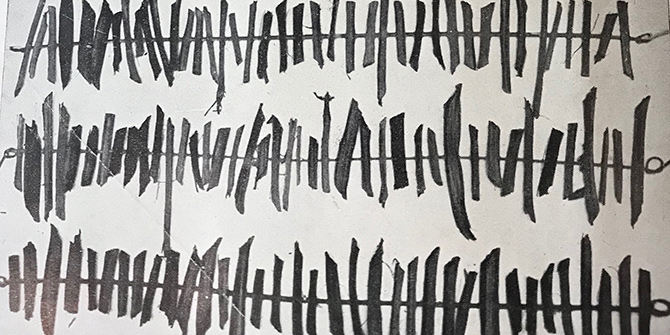LSE’s Nabila Ramdani says that Egypt’s new President Mohammed Morsi has the intellect and experience to adapt to the demands of a new Egypt. This post originally appeared in London’s Evening Standard newspaper.
After months of turmoil, the emergence of a fully-fledged Islamist government in the Arab world’s most populated country might easily be viewed as a problem.
The Arab Spring ended the Mubarak dictatorship but the hated autocrat has now been replaced by a politician whose pronouncements have been anything but moderate.

Mohammed Morsi, who was elected president on 51.73 per cent of the vote, has made many inflammatory speeches in the past, suggesting at one point that the introduction of Sharia law would be his primary goal.
Liberal groups including feminists have certainly expressed their alarm about Morsi’s organisation, the Muslim Brotherhood, since long before those heady days of February 2011 when Mubarak was toppled.
Morsi actually called for women to be barred from standing for the presidency, along with numerous minority groups including Christians. Peace with Israel — something that was all but guaranteed under Mubarak — has never been a priority for the Brotherhood either.
Yet, following victory, “Egypt for all the Egyptians” has become Morsi’s unifying slogan as even the once pro-Mubarak US administration suggests that the new Egypt can become a “pillar of regional stability” in the Middle East and North Africa.
The Morsi I met in Cairo while covering the election earlier this month did not live up to the caricatures. He refused to be drawn into debates about veils, alcohol or any of the Islamist-related issues which might provoke pedantry, instead focusing on more pressing issues such as tackling corruption.
Rather than a sinister extremist determined to drag his country back to the dark ages, Morsi came across as a pragmatic technocrat. Not only was he educated as an engineer in the US but he told me that he was certainly prepared to work with the West.
More than that, the imposition of policies based on religious orthodoxy will be a long way down Morsi’s list of priorities as he faces up to Egypt’s economic and social problems.
Remember, too, that the Supreme Council of the Armed Forces (Scaf) has ruled the country since the revolution, and has introduced a number of decrees to try to maintain its iron-grip on power. Its influence on Egypt’s immediate future will be enormous.
As he tries to improve everything from education to employment opportunities, Morsi will be competing with a ruthless military machine which as recently as 2006 held him in jail for six months.
Repression and chaos create radical, controversial politicians and until now Morsi has been a man of his time, and indeed of his turbulent country.
Among the vast crowds still cheering him in Cairo’s fabled Tahrir Square are thousands who took part in just 18 days of insurrection which brought about the fall of Mubarak. They know more than anyone else that profound change is possible in a very short space of time, and that Morsi has the intellect and experience to adapt to the demands of a new Egypt.
The problems will appear insurmountable to some, but as he tries to unite his troubled nation and guide it to peace and prosperity, Mohammed Morsi is far more likely to evoke the democratic spirit of the Arab Spring rather than a dogmatic religious one.
Follow Nabila Ramdani on twitter @NabilaRamdani or visit her website http://www.nabilaramdani.com/.





